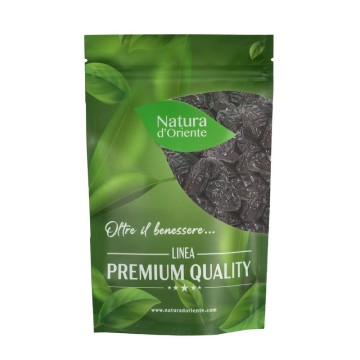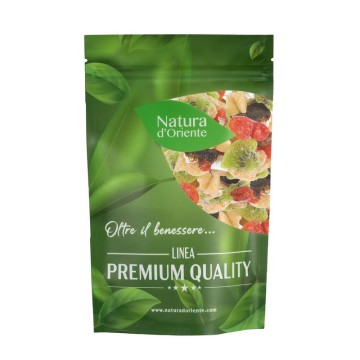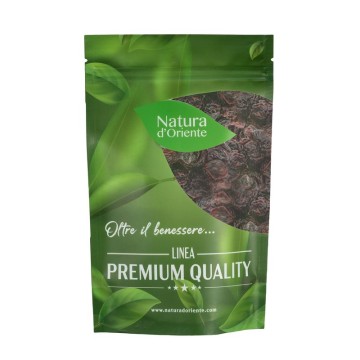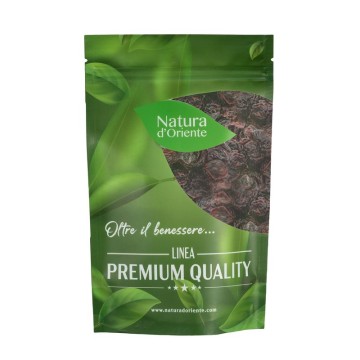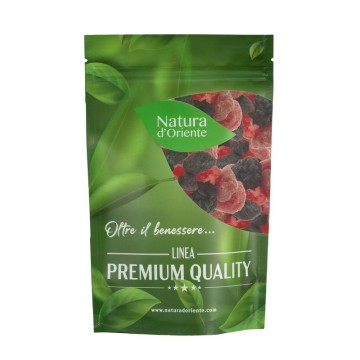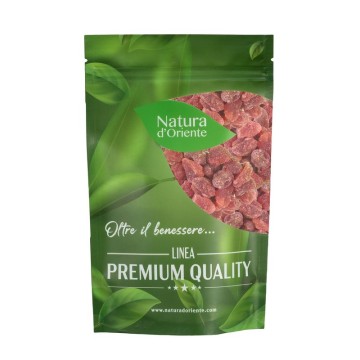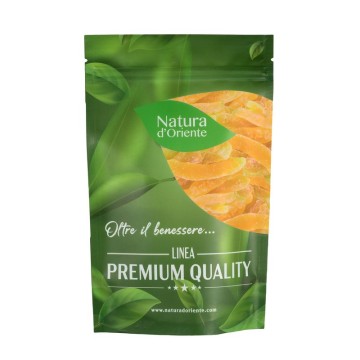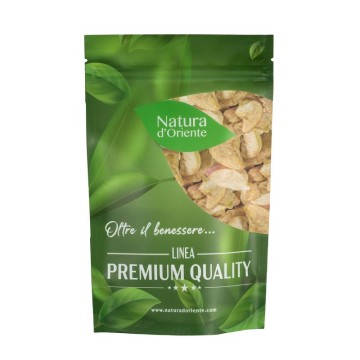Natural dehydrated sugar-free sliced ginger
This plant is used in cooking and for well-being, thanks to its known benefits. For centuries, humans have experimented with the properties of ginger, which are also available to our body in the version of dehydrated ginger.
We know, in fact, that drying does not affect the biologically important chemical compounds, particularly if it is natural sliced ginger , without sugar.
Natural dried ginger: properties and benefits
Much appreciated in the kitchen as a spice since ancient times, in the territories of origin, in recent times ginger has also been transformed by the food industry as a precious flavoring, and spread all over the world. With ginger, for example, the drink known as ginger is produced.
In oriental medicine, it was known for its interesting beneficial properties which at the time were used as a natural anti-inflammatory, effective digestive, anti-nausea and anti-dizziness, and even as an aphrodisiac.
The active ingredients of the plant, which allow these characteristics, are concentrated in its root, the rhizome, where non-volatile substances are present, such as gingerols, shogaoli, resins and mucilage.
Its flavor comes from polyphenols, the aforementioned gingerols and shogaols, which are also responsible for the antioxidant and anti-nausea properties of ginger.
We know that ginger can be a protective food for the gastric mucosa , a valuable ally for digestion that counteracts the accumulation of toxins and bacterial fermentation, promoting the elimination of gases. It stimulates assimilation, improves gastrointestinal motility, and increases stomach muscle tone.
This plant is rich in important anti-emetic properties, and useful in limiting motion sickness (symptoms such as dizziness, nausea and regurgitation) and stomach pain . The intake of ginger also helps to counteract the symptoms of esophageal reflux.
Among the best known properties of natural ginger, there is that of relieving sore throat , and is used to treat hoarseness and loss of voice when talking too much. When cold air enters the lungs, it can help with ailments of colds on the oropharyngeal system.
Sliced natural ginger is also useful against halitosis , to promote fresh and fragrant breath.
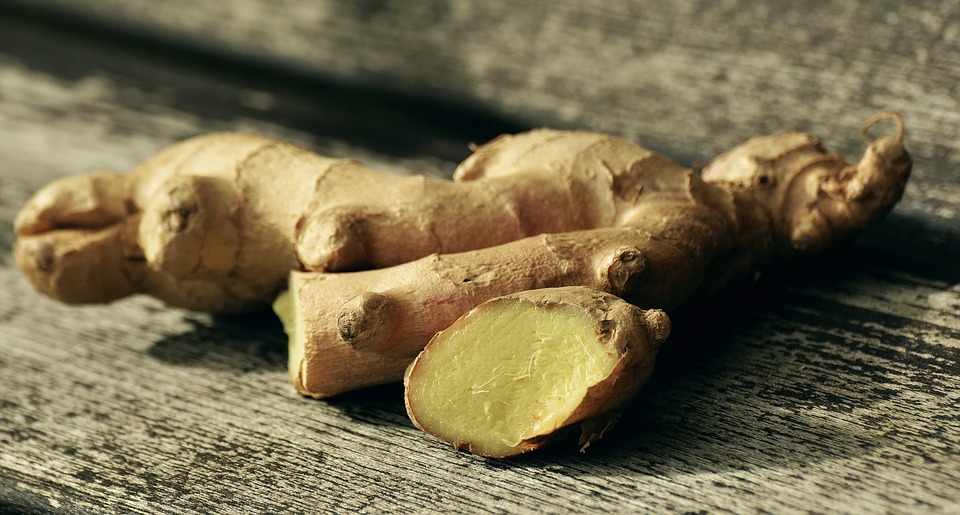
Regarding its purifying properties useful for proper digestion, in the past it was also used as a natural antiseptic.
Sliced dried ginger recognizes the antioxidant benefits, due to gingerol and its possible action in contrasting the oxidation of cells and their aging. Gingerol in the body creates an antioxidant enzyme, which inhibits free radicals with an effect that appears to be greater than that of vitamin E.
Furthermore, when the water is removed from the ginger during the drying process, the concentration of polyphenols increases within the dehydrated version. From fresh ginger it can be dried and cut into slices, diced, ground or candied.
It is also known as a beneficial food for the cardiovascular system, since gingerol and the volatile oils in ginger can have a stimulating effect on the regularity of the vascular system.
As a beneficial food, ginger is used also to counteract disorders related to the menstrual cycle such as common pains in the pelvic area and headaches, and to reduce the amount of flow when it is too abundant.
Origins and History of cultivation
Ginger is a perennial herbaceous plant, native to tropical Asia, therefore from the East. From its rhizome, the underground part often referred to as the root, a very aromatic and spicy spice is obtained, already known in ancient times.
According to the testimony in his writings, ginger was used by Confucius (5th century BC) already in ancient China. In Chinese medicine it was a hot element, to fight the cold and rebalance the body.
It was also considered valuable by Greeks and Romans, in fact the doctor Dioscorides Pedanio (1st century AD) recommended it to warm the stomach and calm it. Furthermore, among the Arab peoples, ginger was known as an energizer and aphrodisiac.
The ginger plant in the Middle Ages was called "gengevo" (hence the English gingifer and then
the current ginger) and was a precious spice. In the sixteenth century it also reached the Americas thanks to the traffic of the Spaniards, and began to spread throughout the world. It was attributed properties of food preservative, sometimes with magical characteristics (preserving the food, it seemed like a supernatural food).
If in oriental kitchens it was widely used to flavor both sweet and savory dishes, in recent centuries also in the West it is used a lot in powdered versions for dishes, drinks, cocktails, but also in the versions of dehydrated sliced ginger, whether without sugar or candied fruit.
It is grown today throughout the tropical and subtropical belt of the planet. The underground part (the rhizome) is collected, which is cleaned if you want to use it fresh or to obtain the dehydrated ginger dried in the sun, transformed into powder and sold as a spice.
On sale, in fact, ginger is found in the form of a fresh or dried root, reduced to powder or in the form of an extract; otherwise, like candied ginger using only the natural sugar of its root.
Natural ginger can also be dehydrated and sugar-free , in the convenient form of sliced ginger.
Plant and Fruit
The herbaceous plant Zingiber officinale belongs to the Zingiberaceae family, native to the tropical Far East, probably from Malaysia.
It is a rhizomatous evergreen perennial plant, which has a fleshy and branched rhizome (an underground shoot).
From the rhizome, hollow stems are born, formed by leaves, and other stems with yellow-green inflorescences, in addition to real flowers, small and white. Ginger bushes expand with growth, reaching up to half a meter in width and also the same size in height.
The fruit, woody, consists of a capsule divided into three parts, and is usually not eaten.
Ginger is grown as an indoor plant or sometimes in home gardens, and grows in warm climates, where temperatures do not drop below 5 ° C.
The part of the ginger used in the kitchen is the rhizome, which has a spicy taste suitable for flavoring dishes as a spice. The rhizome is harvested from the moment the ginger plant has accumulated essential oil, ie during the cold season between January and February.
Nutritional values of sugar-free dehydrated ginger
Dried ginger has a good calorie content, as it provides 350 Kcal for every 100 grams. In the no added sugar version, sliced ginger is composed only of natural sugars (62 g), with zero fat , and about 2% fiber.
It shows important active ingredients in the essential oil, composed of zingiberene , polyphenols gingerols and shogaols which make its pungent taste, resins and mucilages.
It is considered among the various types of dehydrated fruit, even if it actually derives from the rhizome and not from the fruit, the sliced natural ginger contains some phenolic substances studied for their properties, the 6-gingerol which when dried turns into 6-shogaol.
Ginger contains about 5 mg of vitamin C per 100 grams, and good doses of vitamin B1 and vitamin B3.
Dehydration enhances the properties of fresh ginger, making it more provocative in taste, and beneficial in effects.
How to consume dehydrated ginger in the kitchen or as a snack
The version of natural dehydrated ginger without sugar , has a quite pungent flavor much loved as a snack, or to flavor dishes such as soups and broths.
Used as a spice, it can become an ingredient for the preparation of desserts such as cakes or biscuits. In the dehydrated version, ginger has a more marked flavor.
In the sliced ginger version, it is often consumed as a snack hunger-breaker or energetic, thanks to the sugars contained. In fact, it can be used to create energy bars suitable for those who practice physical or athletic activity.
It is also inserted in thin slices in yogurt, smoothies, ice creams or dried fruit mixes, and in some fruit salads where its aroma and pungent flavor blend well with the ingredients.
In Japanese cuisine, ginger is served as a sweet and sour pickle with sashimi.
Dehydrated ginger: side effects and contraindications
There are no particular contraindications to taking natural ginger, but a possible intol must be considered
![]()

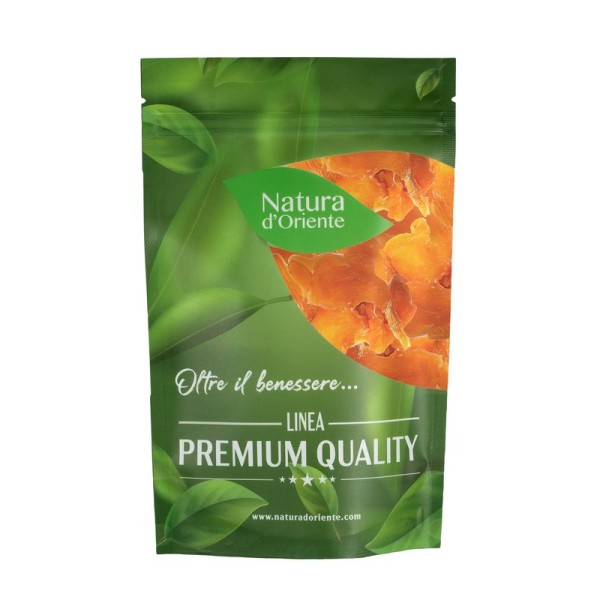







 No reward points for this product.
No reward points for this product.



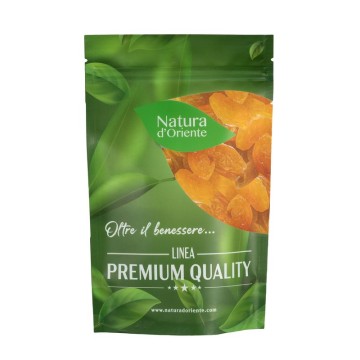

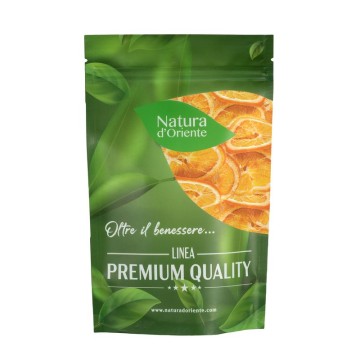
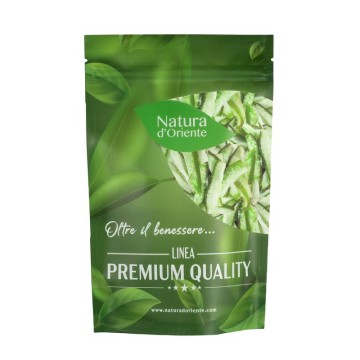
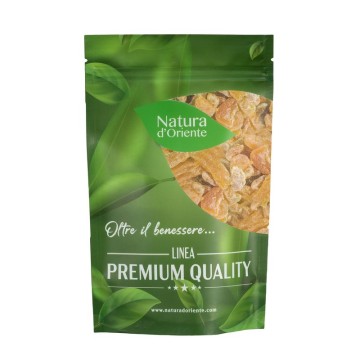
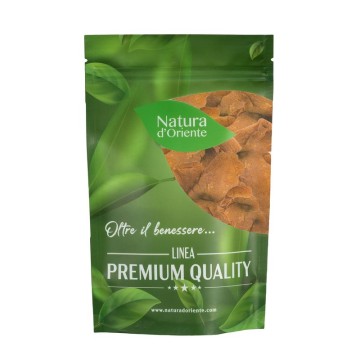
![Natural dehydrated grapefruit without added sugar [NATURADORIENTE]](https://www.naturadoriente.com/10190-home_default/pompelmo-naturale-disidratato-senza-aggiunta-di-zucchero.jpg)
